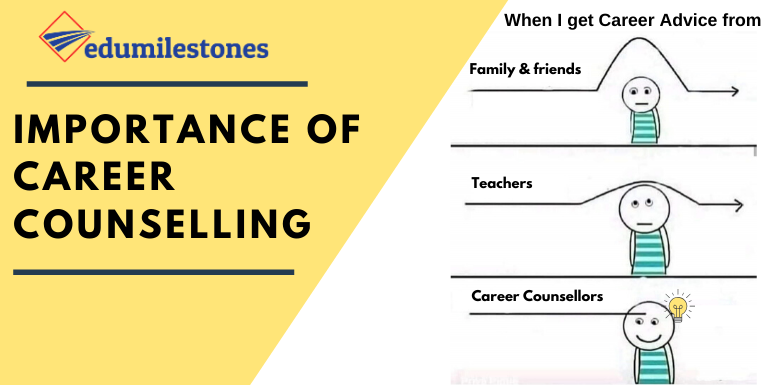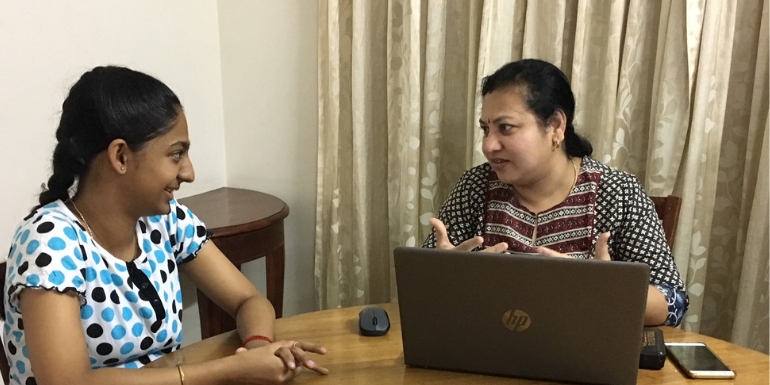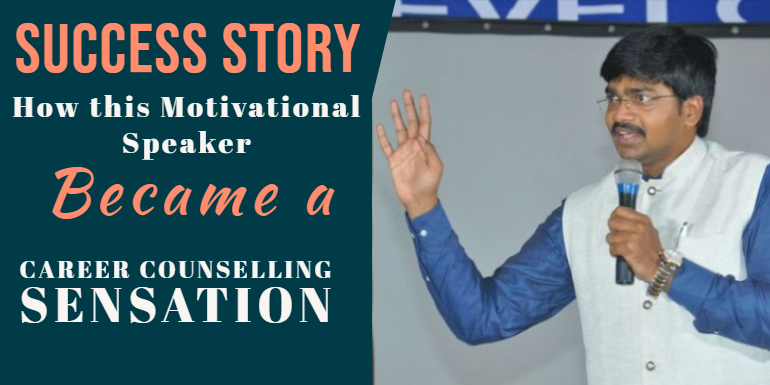Unlocking Career Counselling Opportunities for Non-Psychology Professionals
In todays competitive job market, career counselling plays a pivotal role in guiding individuals towards fulfilling career paths. While a background in psychology has traditionally been considered a prerequisite for this profession, there is an emerging opportunity for non-psychology professionals to excel in the field.
Who is a Career Counsellor?
A career counsellor is a professional who helps individuals navigate their career paths by providing guidance, support, and expertise. They assist clients in making informed decisions about their careers, exploring different occupations, assessing their skills and interests, and developing strategies to achieve their career goals. Career counsellors utilize various tools and techniques, such as career assessments, counseling sessions, and resources, to help clients gain self-awareness, explore career options, and make informed choices. They may work in educational institutions, private counseling practices, non-profit organizations, or government agencies, serving individuals at different stages of their careers, including students, job seekers, and individuals seeking career transitions. A career counsellor plays a crucial role in empowering individuals to make meaningful career decisions and find fulfilment in their professional lives.
Do you need a psychology background to be a Career Counsellor?
No, becoming a career counsellor can be a rewarding and fulfilling career choice, even if you dont have a background in psychology. While a psychology background can provide a solid foundation for understanding human behaviour and counseling techniques, there are alternative paths to pursue a career in this field and career counsellor course. By gaining relevant knowledge, acquiring practical experience, and obtaining career counsellor course certifications, you can develop the necessary skills to help individuals navigate their career paths effectively. In this guide, we will explore the steps you can take to become a career counsellor without a psychology background. With dedication, continuous learning, and a passion for guiding others, you can embark on a successful career in career counseling.
Exploring different routes to Career counselling
Career counsellors can come from diverse backgrounds and possess various qualifications. While having a background in psychology or counseling can be advantageous, individuals from other fields can also become career counsellors with the help of career counsellor course. Here are some examples of professionals who can serve as career counsellors:
- Counsellors: Professional counsellors, including mental health counsellors, marriage and family therapists, or school counsellors, can become a career counsellor by undergoing a career counsellor course. They can leverage their counseling skills and knowledge to support individuals in making informed career decisions.
- Human Resources Professionals: Human resources (HR) professionals who have experience in talent management, employee development, or career planning can transition to become a career counsellor by signing up for a career counsellor course. Their knowledge of workplace dynamics and industry trends can be valuable in guiding individuals in their career choices.
- Education Professionals: Teachers, school administrators, or educational consultants who have a deep understanding of educational systems and pathways can offer career counsellor course within an educational setting and become a career counsellor. They can help students explore career options, select appropriate courses, and plan for post-secondary education.
- Industry Experts: Professionals with extensive experience and expertise in specific industries can become a career counsellor within their respective fields. They can provide specialized guidance, insights, and practical advice based on their knowledge of job roles, career progression, and industry-specific requirements.
- Retired Professionals: Retired professionals with a wealth of knowledge and experience can offer career counseling services to individuals transitioning or seeking new career opportunities by opting to become a career counsellor. Their insights and guidance can be particularly valuable to those considering a career change or re-entering the workforce.
- Nonprofit Organizations and Career Centers: Nonprofit organizations, community centers, and career development centers often employ individuals with a passion for career counseling to become a career counsellor. These professionals may have diverse backgrounds and receive additional training specific to career counseling.
- Certified Career Counsellors: Some individuals choose to pursue specialized certifications in career counseling, such as the National Certified Career Counsellor (NCCC) credential to become a career counsellor. These certifications indicate a higher level of expertise and commitment to the field of career counseling.
Ultimately, anyone with a genuine interest in helping individuals navigate their career paths and possessing the necessary knowledge, skills, and qualifications can become a career counsellor by means of a career counsellor course. It is important to continuously update ones knowledge, engage in professional development, and adhere to ethical guidelines in order to provide effective and ethical career counseling services which can be achieved through career counsellor course.
Unveiling the top 10 qualities and skills to be a successful Career Counsellor
1)Strong Interpersonal Skills: Career counsellors need excellent communication and active listening skills to establish rapport with clients. They should be able to empathize, understand clients concerns, and effectively communicate insights and recommendations.
2)Knowledge of Occupational Information: A career counsellor should possess up-to-date knowledge of various occupations, industries, and labour market trends. They should be familiar with job roles, educational requirements, salary ranges, and career advancement opportunities.
3)Assessment Tools: Career counsellors use various assessment tools to evaluate clients interests, personality traits, skills, and values. These assessments, such as aptitude tests or personality inventories, help individuals gain self-awareness and explore suitable career options.
4)Counseling Techniques: Counsellors employ a range of counseling techniques to support individuals in their career exploration and decision-making process. Techniques may include cognitive-behavioural therapy, solution-focused therapy, or motivational interviewing.
5)Goal Setting and Action Planning: Career counsellors assist clients in setting realistic career goals and creating action plans to achieve them. They help individuals identify steps, resources, and strategies to navigate their career journeys successfully.
6)Career Development Theory: Understanding career development theories, such as Hollands RIASEC model, Supers life-span theory, or Krumboltzs social learning theory, provides a framework for understanding individual career choices and transitions.
7)Cultural Competence: Career counsellors should embrace cultural competence, recognizing and respecting diverse backgrounds, values, and perspectives. They need to be sensitive to cultural influences on career decisions and provide inclusive guidance.
8)Networking and Collaboration: Building a network of professionals in various industries and collaborating with other career counsellors, educators, or employers can expand resources and opportunities for clients. Networking helps career counsellors stay informed about the job market and industry trends.
9)Professional Ethics: Upholding ethical guidelines and maintaining client confidentiality are crucial for career counsellors. They must prioritize the well-being and best interests of their clients and adhere to professional standards of practice.
10)Lifelong Learning: As the job market evolves, career counsellors must engage in continuous professional development. Attending workshops, conferences, and staying updated with industry research and trends ensures they can provide the most relevant and current guidance to clients.
Leveraging your existing expertise to excel as a Career counsellor
To become a career counsellor doesnt mean starting from scratch. You can leverage your existing expertise and experiences to excel in this rewarding profession with the aid of career counsellor course. This blog highlights how your background in a specific field can be an asset, allowing you to provide valuable insights and guidance to individuals seeking career direction.
1)Unveiling Your Transferable Skills: Identify skills from your current or previous profession that are applicable to career counseling. These could include communication, problem-solving, leadership, research, or mentoring abilities which can be moulded with a career counsellor course to become a career counsellor.
2)Industry Knowledge Advantage: Your deep understanding of a specific industry can be invaluable when assisting individuals within that field become a career counsellor. Leverage your insights into job roles, career progression, and industry trends to guide clients effectively.
3)Tapping into Your Network: Your existing professional network can be a valuable resource for both you and your clients. Connect individuals with industry experts, potential mentors, or job opportunities to enhance their career prospects.
4)Translating Experiences into Career Stories: Your own career journey is a testament to the power of personal experiences. Use your stories to inspire and motivate clients, showcasing how their unique backgrounds can lead to fulfilling career paths to become a career counsellor and how a career counsellor course can be a guiding light.
5)Niche Specialization: Consider specializing in a specific area or industry where your expertise aligns. To become a career counsellor in that niche, you can provide tailored guidance and establish yourself as an industry expert.
6)Bridging the Gap: As a career counsellor with expertise in a particular field, you can bridge the gap between academic knowledge and real-world applications. Help clients understand the practical implications of their career choices and guide them towards success.
7)Continuous Learning: While leveraging your existing expertise is important, its also crucial to continuously update your knowledge. Stay informed about industry trends, emerging job roles, and changing market dynamics to provide up-to-date guidance.
8)Collaborating with Professionals: Establish partnerships with other career counsellors, psychologists, or industry experts. Collaborative efforts can enhance your knowledge base and broaden your perspective, ultimately benefiting your clients.
9)Embracing Multidisciplinary Approaches: Draw upon insights from various disciplines, combining your existing expertise with theories and practices from career counseling, psychology, education, and human resources to become a career counsellor. This holistic approach can enrich your counseling methodology.
10)Professional Development: Engage in professional development opportunities specific to career counseling. Attend workshops, conferences, or webinars that focus on counseling techniques, assessments, and career development theories to become a career counsellor.
Your existing expertise is a valuable asset that can propel you towards success as a career counsellor. By leveraging your unique background, industry knowledge, transferable skills, and network, you can provide meaningful guidance to individuals seeking career direction. Embrace continuous learning, collaborate with professionals, and develop a holistic approach to counseling. With dedication and a passion for helping others, you can make a significant impact as a career counsellor while utilizing your existing expertise.
Transform your passion for Career guidance into a profession with Edumilestones
Are you passionate about helping individuals make informed career choices and navigate their professional paths? If so, consider pursuing a career as a professional career counsellor with Edumilestones. We offer comprehensive career counsellor course, training programs and resources to equip you with the skills, knowledge, and qualifications needed to excel in this fulfilling profession. Join us on this transformative journey and turn your passion for career guidance into a rewarding profession with our career counsellor course.
Why choose Edumilestones?
- Specialized Training: Our career counsellor course provides specialized training in career development theories, counseling techniques, assessment tools, and industry trends. You will gain a deep understanding of the factors influencing career choices and be equipped with the skills to guide individuals effectively.
- Experienced Faculty: Learn from experienced career counsellors and industry professionals who will share their expertise and insights in our career counsellor course. Benefit from their practical knowledge and real-world experiences, helping you develop a strong foundation in career counseling.
- Practical Experience: Gain hands-on experience through internships, workshops, and simulated counseling sessions included in the career counsellor course. Apply your knowledge in real-life scenarios, working with clients and refining your counseling skills under the guidance of experienced professionals.
- Comprehensive Curriculum: Our curriculum covers a wide range of topics, including career assessment, goal setting, job market analysis, resume building, interview skills, and networking strategies. You will be well-prepared to address the diverse needs of individuals seeking career guidance.
- Personalized Support: Receive personalized guidance and support throughout your journey, post your career counsellor course. Our faculty and mentors will assist you in developing your strengths, addressing challenges, and building a successful career counseling practice.
- Networking Opportunities: Connect with a vibrant community of career counsellors, educators, and industry professionals. Collaborate, exchange ideas, and expand your professional network through workshops, seminars, and networking events organized by Edumilestones.
- Career Development: Our career counsellor course not only focus on preparing you to become a career counsellor but also offer resources and guidance for your own professional growth. Stay updated with the latest trends, research, and best practices in career counseling through our continuous learning initiatives.
- Ethical Practice: We emphasize the importance of ethical guidelines and professional standards in career counseling. Our career counsellor course instils a strong sense of ethical responsibility, ensuring that you provide services with integrity, respect confidentiality, and prioritize the well-being of your clients.
Begin your journey today:
Are you ready to embark on a meaningful and fulfilling career as a professional career counsellor? Visit our website or contact us to explore our career counsellor course, training programs, curriculum details, and admission process. Take the first step towards transforming your passion for career guidance into a rewarding profession with Edumilestones.













